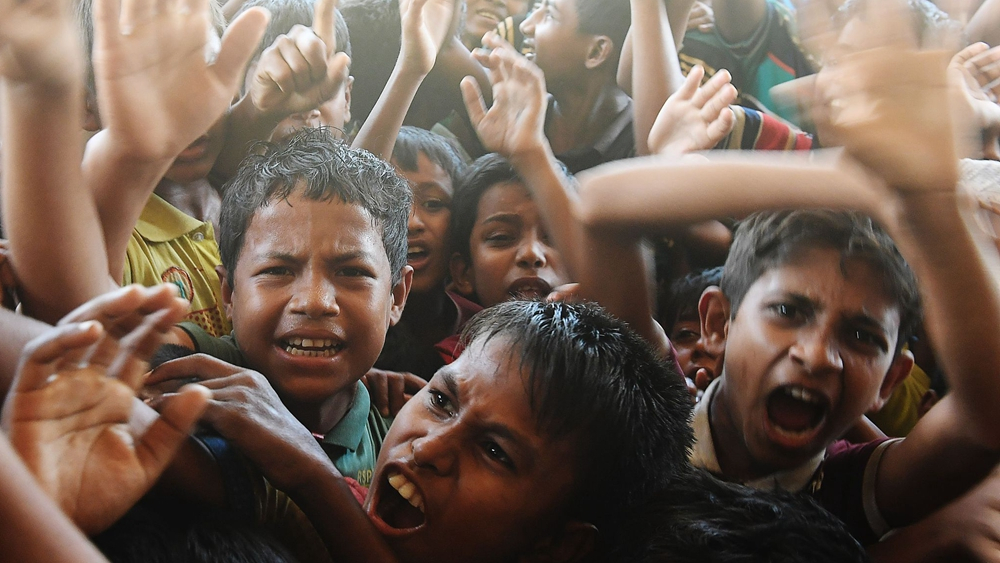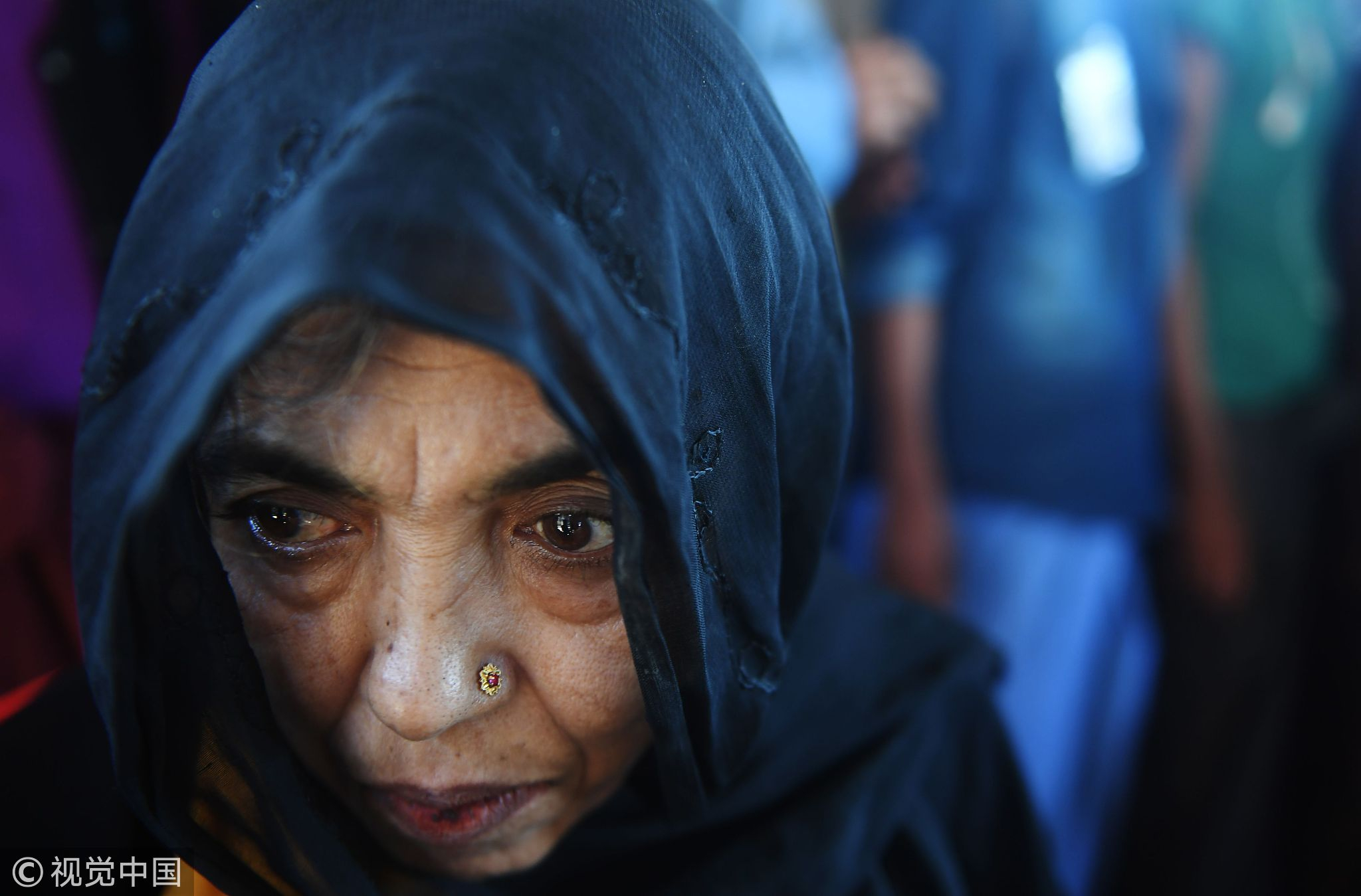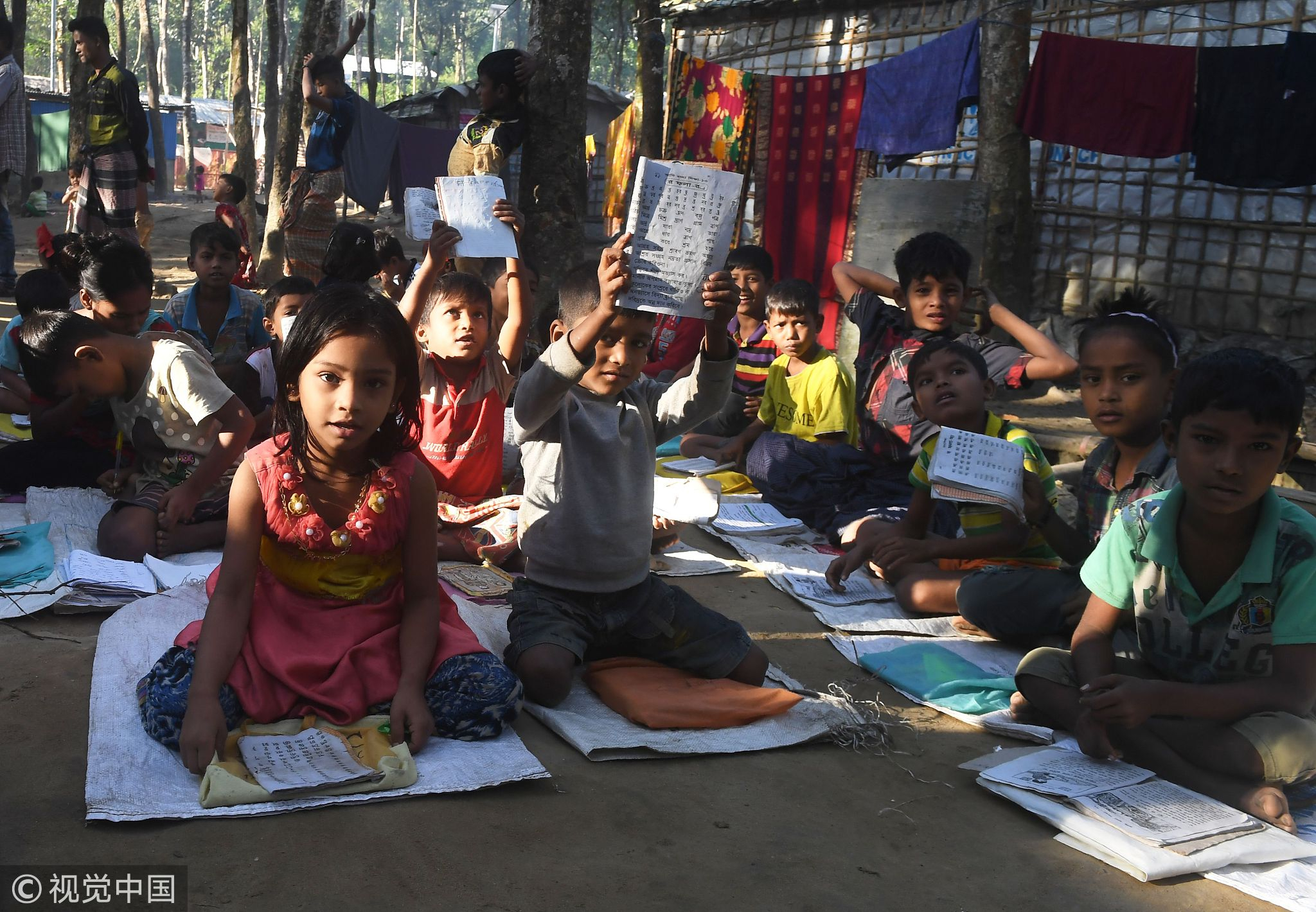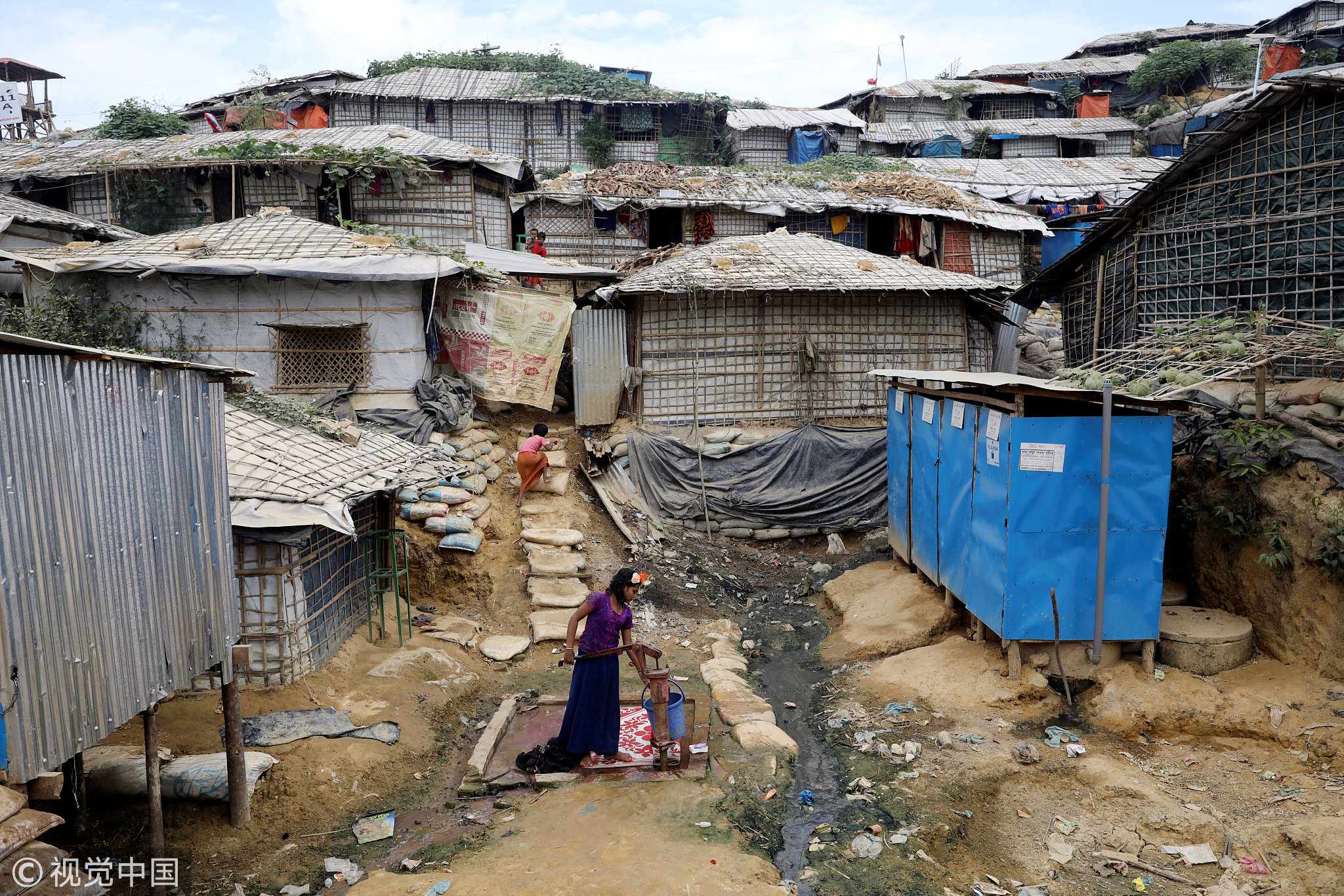
World
11:46, 16-Nov-2018
Rohingya repatriation process stalls amid refugee protests, recriminations
Updated
11:42, 19-Nov-2018
CGTN

A plan to begin repatriating hundreds of thousands of Rohingya Muslim refugees to Myanmar stalled on Thursday, amid protests by refugees at camps in Bangladesh and recriminations between the officials in both countries.
The delay leaves one of the world's biggest refugee crises unresolved. Officials on both sides blamed each other for the lack of progress on the bilateral plan that had been agreed on in late October.
Bangladesh had begun preparations to repatriate an initial batch of 2,200 Rohingya to Myanmar on Thursday, but there have been extensive doubts about the plan. It has been opposed by Rohingya at camps in Bangladesh and the UN refugee agency and aid groups, who fear for the safety of the Rohingya in Myanmar.

Rahela Begum, an enlisted Rohingya refugee for repatriation, reacts at the Unchiprang refugee camp near Teknaf, November 15, 2018. /VCG Photo
Rahela Begum, an enlisted Rohingya refugee for repatriation, reacts at the Unchiprang refugee camp near Teknaf, November 15, 2018. /VCG Photo
Hundreds of Rohingya Muslim refugees in Bangladesh protested on Thursday against any attempt to send them back, and by late afternoon no refugees had returned, according to Myanmar officials.
Myanmar blamed Bangladesh for failing to bring any returnees but said it remained ready to accept them.
"To be honest, Bangladesh is weak in following the physical arrangement," said Myint Thu, permanent secretary at Myanmar's foreign affairs ministry.

Young Hindu Rohingya refugees attend an open-air class at Kutupalong refugee camp in Ukhia, November 15, 2018. /VCG Photo
Young Hindu Rohingya refugees attend an open-air class at Kutupalong refugee camp in Ukhia, November 15, 2018. /VCG Photo
"We will accept them according to the agreement signed by the two countries. Whether they come back or not is their own decision," said Myint Thu.
Bangladesh has vowed not to force anyone to return and it has asked the UN High Commissioner for Refugees to ensure those short-listed to return really want to go back.
"We made all preparations. Everything was ready: the transit camp, buses to carry them to the border, medical facilities, rations for three days for the returnees," said Abul Kalam, Bangladesh's Refugee Relief and Repatriation Commissioner.

A Rohingya refugee girl collects water from a handpump at the Balikhali camp in Cox's Bazar, November 14, 2018. /VCG Photo
A Rohingya refugee girl collects water from a handpump at the Balikhali camp in Cox's Bazar, November 14, 2018. /VCG Photo
"How they can say we are weak in physical arrangements? If Rohingya don't want to return what can we do? We will not send them forcefully, " said Kalam.
Earlier on Thursday, Rohingya protesters chanted "No, no, we won't go," at the Unchiprang camp in southeast Bangladesh near the Myanmar border.
It's reported that in an open letter to Myanmar leader Aung San Suu Kyi in late October, a group of Rohingya refugees listed ten demands, including receiving compensation and reparations, and said that the community would not return until all the demands were met.
(Source: Reuters)
Source(s): Reuters

SITEMAP
Copyright © 2018 CGTN. Beijing ICP prepared NO.16065310-3
Copyright © 2018 CGTN. Beijing ICP prepared NO.16065310-3